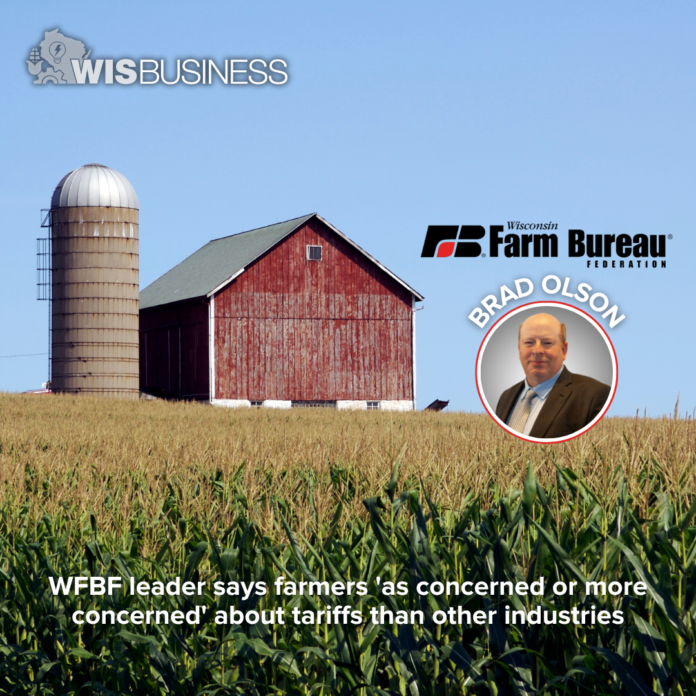The head of the Wisconsin Farm Bureau Federation says farmers are “as concerned or more concerned than any other industry” about tariffs, though trade uncertainties haven’t yet had a major impact on agriculture.
WFBF President Brad Olson said in a recent interview the threat of tariffs hasn’t resulted in many changes to purchasing or planting in Wisconsin. In other industries, tariffs and related concerns are having a paralyzing effect as some businesses hold off on hiring and other investments. But Olson notes farmers are used to dealing with uncertainty, and tariffs are just one factor among many.
“Does it rain enough, doesn’t it rain enough? Does it rain at the right time or the wrong time? Right down to, on trade, how big of a crop does South America have, versus how big of a crop ours is,” he said. “We play in a world market when it comes to exporting, and at the end of the day, all we can ask and hope for is fair and even trade with other countries.”
Still, he added “we’re very concerned” about how tariffs could impact the industry and farmers are in a “wait and see” mindset as the situation changes day-by-day.
Olson said farm-level decisions about which crops to plant and in what quantity, as well as purchases of seeds and fertilizers, had already happened as international conversations around tariffs were taking place earlier this year.
But he acknowledged China is the top purchaser of soybeans grown in the United States, noting the trade war “could have lasting effects down the road” when the crop is harvested.
Wisconsin soybean farmers produced about 102 million bushels of soybeans in the 2023/2024 marketing year, according to the Wisconsin Soybean Marketing Board, placing the state 14th among the 29 states that produce the crop.
“Tariffs could hit that hard, and more of those soybeans that are going into China could be purchased from Brazil,” Olson said. “That’s always an issue.”
He also noted the vast majority of a material called potash — used as fertilizer by farmers — comes from Canada, and trade conflicts with the United States could jeopardize that supply.
“There was enough potash, again for the most part, in the country for spring planting,” he said. “Now as we get to top-dressing alfalfa with potash … it could certainly have a detrimental effect if the tariffs stay on in Canada with 80% of our potash coming out of there.”
Ultimately, Olson hopes to see new trade agreements with other countries come together, noting “there has been very little new agriculture trade deals” in recent years.
“I think just getting trade deals in place … that are fair for both sides, right, is important,” he said. “Working with other countries to make sure that our products can fairly get to their markets, and their products can fairly get to ours.”







